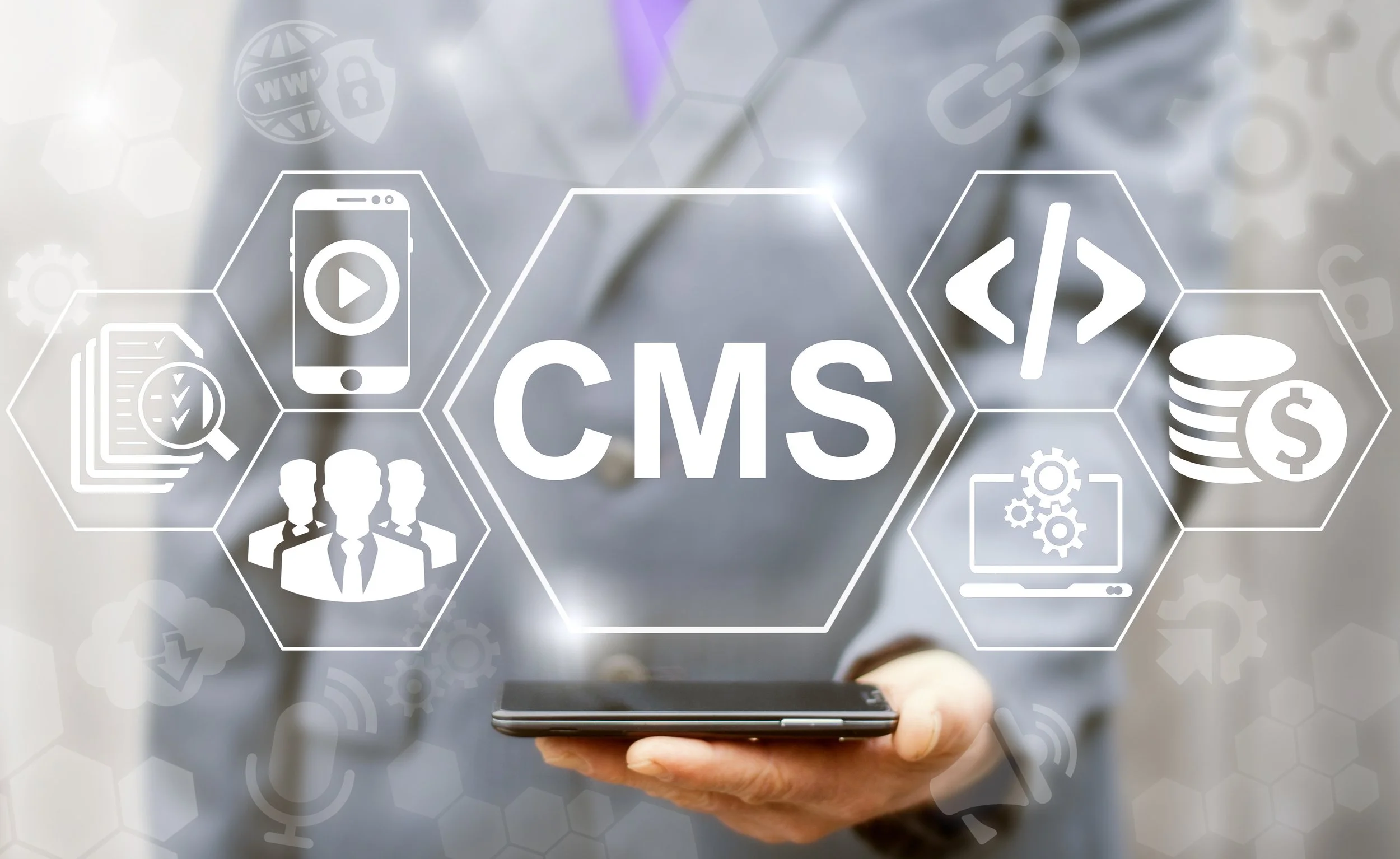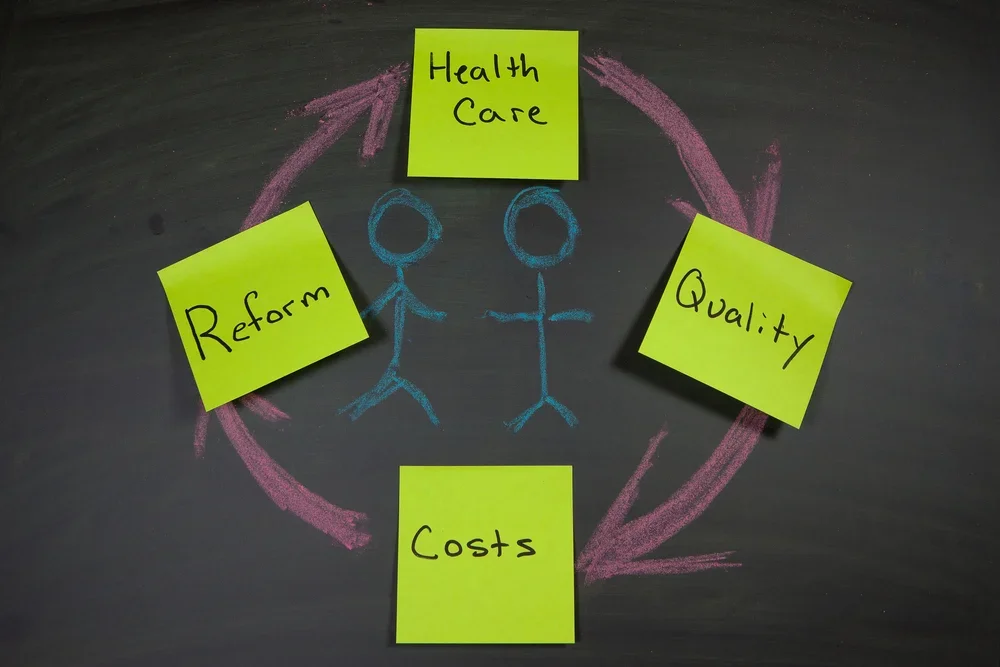
Resources:
Grow in knowledge.

Nixon Law Group, a leading health law firm, welcomes Faisal Khan, Esq.
Nixon Law Group, a leading health care law firm representing innovative healthcare providers and health technology companies, announced today that Faisal Khan, Esq. has joined the Firm as Senior Counsel. Mr. Khan will be based in Cleveland, Ohio, expanding Nixon Law Group's reach in the Midwest.

An overview of General Data Protection Regulation (GDPR), HIPAA, and what you need to do next
General Data Protection Regulation (GDPR) preparedness should be a priority and we will review the steps you need to take to make sure you’re in compliance. Though the GDPR comes from the European Union, businesses everywhere should apply GDPR principles in practice.

Breakthrough Devices: CMS Removes Hurdles and Increases Payments for New Technology Add-On Payments Under the IPPS Final Rule
Hospitals and medical device manufacturers will both benefit from the Centers for Medicare and Medicaid Services’ (CMS) finalization of the 2020 Inpatient Prospective Payment System (IPPS) Final Rule (“Final Rule”) scheduled to be published on August 16, 2019. In an effort to increase Medicare beneficiaries’ access to innovative medical technologies, CMS has finalized certain changes to the “new technology add-on payment” “(NTAP) application and payment processes under the Final Rule. This change is likely to encourage hospital adoption of new technologies, which is intended to spur innovation and additional investment in these technologies.

New Maryland Telehealth Rules for Psychiatric Nurse Practitioners
Maryland’s Secretary of Health adopted new regulations that lay out standards for the nonclinical practice of teletherapy by certified registered nurse practitioners/psychiatric mental health (CRNP/PMHs) and psychiatric mental health/advanced practice registered nurses (PMH/APRNs).

Nixon Law Group, a Leading Health Law Firm, Welcomes Thomas E. Miller, Esq.
Nixon Law Group, a leading health care law firm representing innovative healthcare providers and health technology companies, announced today that Faisal Khan, Esq. has joined the Firm as Senior Counsel. Mr. Khan will be based in Cleveland, Ohio, expanding Nixon Law Group's reach in the Midwest.

Reimbursement and Practical Considerations for House Call Practices
Are you thinking about starting a new house call practice? There will be things you need to prepare for (and budget for), so Nixon Law Group compiled this information. Note that major concerns include whether commercial clients can reimburse, what kinds of safety needs there are, and Medicare requirements for a “practice location.” Read more below and feel free to contact us with questions!

CMS issues Technical Correction regarding "Incident To" Billing for Remote Patient Monitoring
On March 14, 2019, CMS issued “Technical Corrections” to address errors in the 2019 Final Medicare Physician Fee Schedule (“MPFS”) published on November 23, 2018. One of these corrections addresses “incident to” billing by clinical staff, and has important implications for Remote Patient Monitoring under CPT Code 99457.

Considerations for Clinician Contracting – An Employer Perspective
Having written a series of posts over the years addressing employment contracting from the physician perspective, one of our readers reached out to let us know that Nixon Law Group should, likewise, address physician/clinician employment contracting from the perspective of the healthcare employer. Considerations for Clinician Contracting – An Employer Perspective…

Free Smartphones for Patients?! The OIG's Opinion
This Advisory Opinion demonstrates OIG’s willingness to remove barriers to adoption of healthcare technologies - such as lack of access to a smartphone - that may improve patient outcomes and reduce overall costs of care.

7 Common Mistakes Physicians Make When Signing a Physician Employment Contract (and How to Avoid Them)
Smart physicians are not immune from making highly regrettable mistakes when it comes to employment contracts. And unlike in medicine, you don't get the option of trying a new treatment plan if the first one doesn't work. Physicians are educated, and intellectually sophisticated. This means that, even though you weren’t trained to read legal contracts in medical school, courts expect that you have read and fully understand the terms of the contracts you sign. That means that, both during and even after your employment, you're stuck with the contract you sign, so make sure you avoid these common pitfalls.

How to Get Paid for Remote Interprofessional Consultation between Physicians
Last evening, the Centers for Medicare & Medicaid Services (“CMS”) issued its proposed Medicare Physician Fee Schedule for CY 2021 (the “MPFS”). In addition to a number of important changes relating to the provision and reimbursement of telehealth, the proposed MPFS includes long-awaited clarifications around use of the Remote Patient Monitoring (“RPM”) codes established over the past three years

CMS introduces CPT Codes 99453, 99454, and 99457 to reimburse for Chronic Care Remote Patient Monitoring
The final 2019 Medicare Physician Fee Schedule (the “Rule”), released on November 1st, creates three new codes in the category of Chronic Care Remote Physiologic Monitoring (“CCRPM”) for (1) initial set-up and patient education, (2) initial device supply, and (3) monitoring data and interacting with patients or caregivers.

How to get Reimbursed for Virtual Check-ins under HCPCS Code G2012
In its Final Rule for the 2019 Medicare Physician Fee Schedule released on Friday, CMS introduced a new code, HCPCS G2012, allowing physicians and other qualified healthcare professionals (“QHCPs”) to be reimbursed for “virtual check-ins” with patients who aren’t sure whether or not their symptoms warrant an in-office visit. Learn more about virtual check-ins and how they can be used by practices.

HCPCS Code G2010 reimburses for Remote Evaluation of Patient-Submitted Images and Video
The final 2019 Medicare Physician Fee Schedule, released by CMS on November 1, 2018, includes a new code that physicians may use to bill for remote evaluation of images to determine whether or not an in-person office visit is necessary. Learn more about HCPCS Code G2010 and how it can be used in medical practices.

Should I Self-Disclose a Stark or AntiKickback Violation?
On September 27, 2018, the Department of Justice (“DOJ”) for the first time announced its own “road map” guiding voluntary self-disclosures and cooperation with government investigations of fraud and abuse in the healthcare industry. By encouraging self-disclosure, the government is incentivizing healthcare entities to come forward early with reports of violations in the hope of negotiating reasonable settlements, avoiding exclusion from Federal healthcare programs, and reducing the severe civil and criminal penalties that would otherwise be imposed for such violations.
